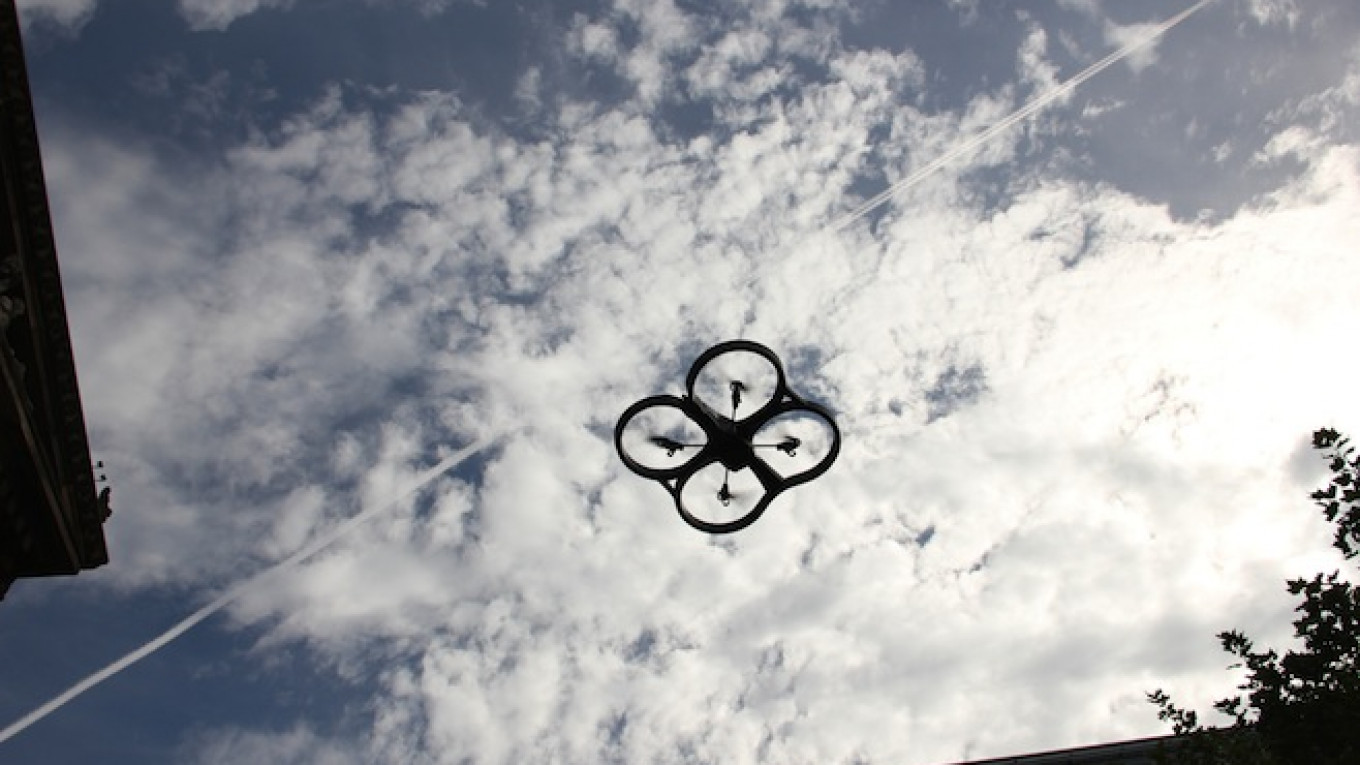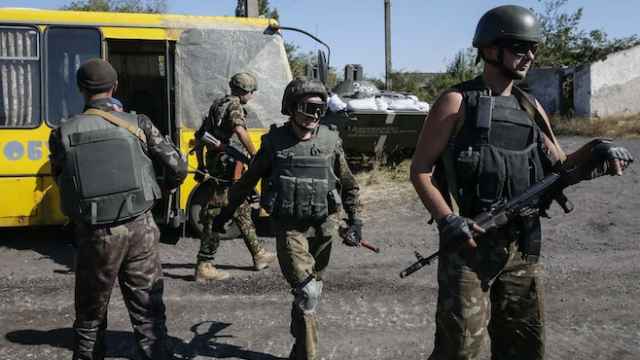The Organization for Security and Cooperation in Europe will deploy drones soon as part of efforts to beef up monitoring the cease-fire in Ukraine, its chairman said on Wednesday.
OSCE chairman and Swiss President Didier Burkhalter called the cease-fire a "real opportunity" and said it should be given time to produce a political dialogue before more sanctions are imposed on Russia over its involvement in the crisis.
EU countries will discuss on Wednesday whether to implement new sanctions after delaying their enforcement to assess whether the cease-fire was holding.
Calling the situation fragile, Burkhalter told an OSCE forum in Prague the security watchdog had 70 specialists in the Donetsk and Luhansk regions to monitor the cease-fire between Ukrainian forces and pro-Russian separatists and was expanding that mission fast.
"Discussions are underway on possibilities of integrating, as soon as possible, national drones as an in-kind contribution by participating states in the... monitoring scheme," he said.
"OSCE-owned drones will also be deployed soon," he added.
OSCE spokesman Shiv Sharma said the group would initially deploy two drones at the end of September to the beginning of October, and that more would follow later. Austrian group Schiebel is manufacturing the drones, he said.
Ukraine's president said Wednesday Russia had removed the bulk of its forces from his country, raising hopes for a peace drive in the conflict in which more than 3,000 people have been killed. Moscow denies sending troops.
In total, the OSCE has 221 monitors in Ukraine and it could have up to 500 under its mandate, the spokesman said.
Burkhalter said Switzerland had pledged a further 10 monitors under a call by the OSCE to field more observers.
A clearing center for dealing with reported violations of the cease-fire from both sides has been set up, he said.
Reverse Logic of Escalation
The OSCE chair said last week's cease-fire agreement "marks a real opportunity to finally reverse the logic of escalation."
He added the OSCE was prepared to facilitate dialogue between Russia and Ukraine, including hosting a meeting on the presidential level.
The EU is discussing implementing new sanctions against Russia, such as restrictions on financing for Russian state-owned oil companies and banks, an expanded list of people whose assets in the EU will be frozen, and new restrictions on the sale of goods that can be used for both military and civilian purposes.
When asked on the new measures, Burkhalter said, "the question has to be... is it a timely situation now for announcing new sanctions or does it make the fragile situation more fragile?
"I'm sure a reasonable way in the situation would be to give more chance to the process, that means to the cease-fire to be respected and the process to be started in the direction of a real political process," he said.
A Message from The Moscow Times:
Dear readers,
We are facing unprecedented challenges. Russia's Prosecutor General's Office has designated The Moscow Times as an "undesirable" organization, criminalizing our work and putting our staff at risk of prosecution. This follows our earlier unjust labeling as a "foreign agent."
These actions are direct attempts to silence independent journalism in Russia. The authorities claim our work "discredits the decisions of the Russian leadership." We see things differently: we strive to provide accurate, unbiased reporting on Russia.
We, the journalists of The Moscow Times, refuse to be silenced. But to continue our work, we need your help.
Your support, no matter how small, makes a world of difference. If you can, please support us monthly starting from just $2. It's quick to set up, and every contribution makes a significant impact.
By supporting The Moscow Times, you're defending open, independent journalism in the face of repression. Thank you for standing with us.
Remind me later.






